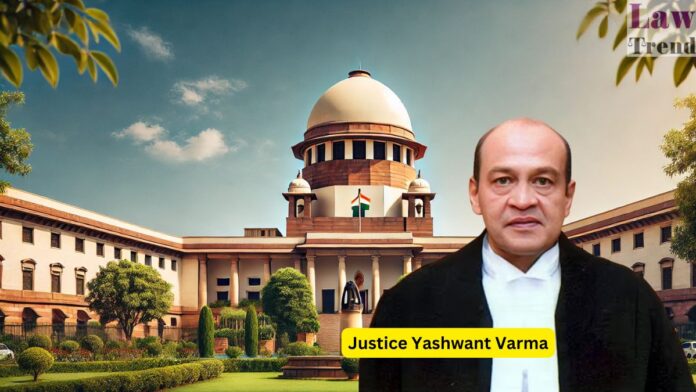The Supreme Court on Wednesday dismissed a writ petition filed by a group of advocates seeking the registration of an FIR against Justice Yashwant Varma following allegations of illicit cash recovery from his official residence. The Court ruled that the petition was not maintainable at this stage, as the petitioners had failed to first approach the President and Prime Minister with a formal representation.
A bench comprising Justices Abhay Oka and Ujjal Bhuyan emphasized that the matter had already been considered under the judiciary’s in-house inquiry mechanism. The report of that inquiry, along with Justice Varma’s response, had been forwarded by the Chief Justice of India (CJI) to the President and Prime Minister.
“There was an in-house inquiry report. It has been forwarded to the President of India and the Prime Minister of India,” Justice Oka stated in court. Addressing Advocate Mathews Nedumpara, who appeared in person, Justice Oka added, “If you are seeking a writ of mandamus, you have to first make a representation to those authorities… Action has to be taken by the President and the Prime Minister.”
The Court reiterated that it neither had access to the contents of the report nor could it compel executive action without a prior representation to the relevant constitutional authorities. The bench declined to entertain other reliefs sought, including a request to revisit the landmark K. Veeraswami v. Union of India judgment, which governs procedures for initiating criminal proceedings against sitting judges.
Advocate Nedumpara, joined by three others, had also sought a declaration that the alleged recovery of cash constituted a cognizable offence under the Bharatiya Nyaya Sanhita and the Prevention of Corruption Act, requiring mandatory police action. However, the Court refused to consider this demand without preliminary steps being taken by the petitioners.
This marks the second time the Supreme Court has dismissed a petition by Nedumpara concerning the controversy. A previous plea filed in March challenging the in-house inquiry itself was also deemed premature.
Justice Varma became the focus of a judicial storm after a fire broke out on March 14 at the storeroom of his official residence, allegedly leading to the discovery of significant cash holdings. On March 21, the CJI constituted a three-judge committee to investigate the matter, following recommendations from Delhi High Court Chief Justice D.K. Upadhyay. Related documents, including Justice Varma’s response, were made public on the Supreme Court’s website.
In the wake of the inquiry, Justice Varma was divested of his judicial responsibilities by the Delhi High Court, and the Supreme Court Collegium recommended his transfer to the Allahabad High Court, his parent court. He has denied all allegations, claiming that he is the victim of a larger conspiracy.
The petitioners have argued that mere impeachment is inadequate and that criminal accountability must follow when allegations concern someone tasked with delivering justice. They demanded a comprehensive investigation to uncover potential bribery, identify beneficiaries, and examine whether judicial integrity was compromised in any cases.




